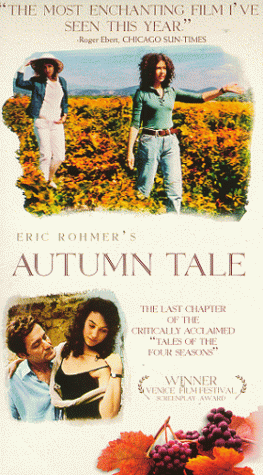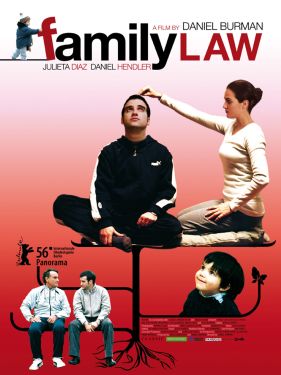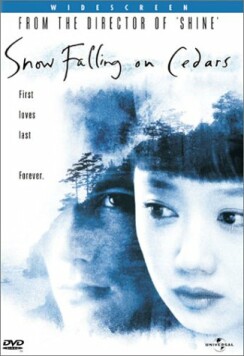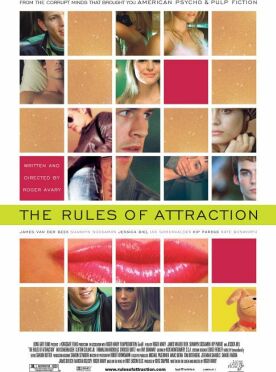Winners, The
The Winners, a documentary by Paul Cohen, tells the story of four former winners and one third place finisher in the Queen Elizabeth Competition for violinists and pianists in Belgium and what has happened to them since. It is an absorbing but disorganized film that doesn’t quite know what it wants to say, though it can be thoroughly appreciated just as an essay on the Vanity of Human Wishes, music division.
Its dominating figure is that of Philipp Hirschhorn, a violinist who won the competition in1967 and subsequently suffered a breakdown and serious illness. He died in 1996, shortly after giving the interviews recorded in this film. The nature of his illnesses is not specified, but his reference to superfluous cells suggests cancer. He also has that quality, so often to be observed in those who have tangled with insanity or spent long years immured inside their own heads, of regarding normal social intercourse as a foreign language. I suppose it doesn’t help that he speaks in English, which to him is a foreign language. As Mischa Maisky. a cellist and friend of Hirschhorn’s since childhood, puts it, he was both supersensitive and supercharged, like a car that can go 400 km per hour. With such a machine, “there is much more chance of this engine blowing up.”
Hirschhorn is an angry man, but angry more with himself than anyone else, it seems. He is angry above all at his own facile brilliance at 21: “One thinks he sees something, thinks he feels something, but he is functioning on the level of a frog,” he says with typical disgust, presumably of himself. “Now I realize that I love music. Only now.” Some of the anger may also be due to his less than brilliant career after the award, but his continual stress on the need for the successful soloist to be lucky suggests a degree of survivor’s guilt. He refuses to believe that all the accolades thrown his way at the time — and in this film, too, when Maisky talks of his “unbelievable mythic power” — could be deserved. Still, he admits he now knows (he thinks) “the ingredients of success” in the music business, though he claims that “it’s also enough to be a very hard worker.”
More ambitious, more assiduously self-promoting and more successful since has been the third place finisher to Hirschhorn in 1967, Gidon Kremer, who went on to win other prestigious competitions afterwards. Hirschhorn comments on Kremer (“clever, analytical, a great diplomat; he knows what he wants. And such men should have what they want”) and Kremer comments on Hirschhorn, saying that at the time he had thought the judges decided wrongly. Interestingly, Hirshhorn agrees with this opinion — sort of — saying that he “did something tricky to convince the jury” to proclaim him victor. It was, he says, “like a successful lie.” Anyway, “I had that impression. That I cheated.” But the “impression” seems more likely to be the product of his belief that the judging process is “like choosing the winner in some lottery.” The decision “depended on what they were eating in the morning, and whether they were constipated, these twelve old men.”
It is a good thing we have contemporary tapes of his amazing performances at the time or we might have believed him. In what is perhaps the film’s most memorable scene, the ravaged Hirshhorn sits watching one such tape of himself playing the heartbreakingly lovely Chausson PoPme with an obvious mix of emotions and whispering, “Silly boy!”
The other winners, including the pianist Yevgeny Moguilevsky, who won in 1964 and then fell out of political favor with the Soviet music bureaucracy, and the violinist Mikhail Bezverkhny, winner in 1976, are in their different ways no less interesting, but their stories added to the mix are what diffuses the film’s focus. The Hirshhorn/Kremer Story elaborated would have made a fascinating film all by itself and made even more emphatically the central point that the artistry demanded of those at the highest levels of the music business often takes a terrible toll of the performers. True, they are also at the mercy of those who live off their musicianship, including not only the Soviet bureaucracy, under which all but one of them suffered, and the cutthroat music business in the West, under which all save Hirschhorn suffer now. But this is really a different subject.
The odd one out is Berl Senofsky, who was born in Philadelphia of Ukranian parents in 1925 and won the competition in 1955. But although he never had to contend with the Soviet bureaucracy (Maisky was once sentenced to 18 months at hard labor for buying a tape recorder at a “hard currency” shop off limits to him), Senofsky had his own problems. At the height of his success in the immediate aftermath of winning, he took two years off to work on his technique for producing vibrato, since he was not happy with his “whole arm vibrato.” His career never recovered. He now teaches at the Peabody Conservatory in Baltimore and talks of the “game” of the business, a game of “you scratch my back and I’ll scratch yours” — which is the way all business works. “Very few things happen righteously, gratuitously,” he says.
The filmmaker plays for him a recording of himself playing the Gluck-Kreisler Melodie from a radio broadcast of 1947. His emotion on listening to his younger self is simpler than but almost as poignant as Hirschhorn’s, especially as he is now over 70. “Where did you get that?” he asks wonderingly of the recording. But it is also the question, forever to remain unanswered, that we cannot forbear to ask about his, and the other four men’s talent. Where did they get that? Compared with that, Cohen’s question in making the film — what has it been worth to them? — is not so difficult to answer, though the answer is difficult to take.
[Top][Back]
Discover more from James Bowman
Subscribe to get the latest posts to your email.







